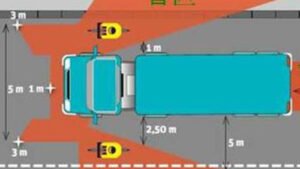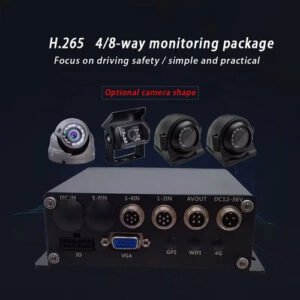Truck tracking systems have become essential for modern fleet management. By leveraging GPS technology and telematics, these systems provide real-time data on vehicle locations, driver behavior, and operational efficiency. In this article, we explore the benefits of truck tracking, its applications, and how it transforms logistics and safety.
What Is Truck Tracking?
Truck tracking uses GPS and telematics to monitor and manage vehicles in real-time. According to Geotab, fleet operators using truck tracking systems experience a 20% reduction in fuel costs and a 30% improvement in delivery efficiency.
Key Benefits of Truck Tracking
1. Real-Time Location Monitoring
Truck tracking systems provide live updates on vehicle locations, enabling managers to optimize routes and respond to delays. This reduces downtime and ensures timely deliveries.
2. Enhanced Driver Safety
Advanced truck tracking systems monitor driver behavior, including speeding, harsh braking, and idling. Reports from the Federal Motor Carrier Safety Administration show that fleets with behavior monitoring systems reduce accident rates by 22%.
3. Improved Fuel Efficiency
By optimizing routes and minimizing idling time, truck tracking systems can significantly reduce fuel consumption. A study by Samsara found that fleets save up to 15% on fuel costs with these systems.
4. Theft Prevention and Recovery
GPS-enabled truck tracking helps locate stolen vehicles quickly. Statistics from LoJack reveal that vehicles with tracking systems are recovered 60% faster than those without.
Applications of Truck Tracking Systems
Truck tracking systems are widely used in various industries, including:
- Logistics: Ensuring timely deliveries and reducing operational inefficiencies.
- Construction: Monitoring heavy equipment movement and usage.
- Food Delivery: Maintaining cold chain logistics by tracking temperature-sensitive shipments.
- Public Services: Tracking garbage trucks, snowplows, and emergency vehicles for optimized routing.
Essential Features to Look For
When selecting a truck tracking system, prioritize these features:
- Real-Time Alerts: Notifications for delays, unauthorized usage, or maintenance needs.
- Route Optimization: AI-driven suggestions for the most efficient routes.
- Driver Behavior Monitoring: Insights into speeding, idling, and other behaviors.
- Integration: Compatibility with existing fleet management software.
Conclusion
Truck tracking systems are no longer optional—they’re essential tools for efficient fleet management. By providing actionable insights, enhancing safety, and reducing costs, these systems transform how fleets operate. Whether you manage a small fleet or a large logistics company, investing in a truck tracking system ensures you stay competitive in today’s fast-paced industry.





